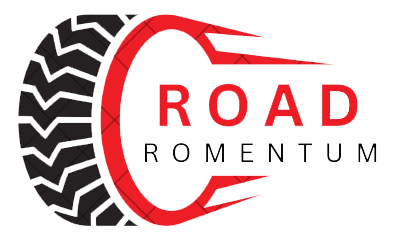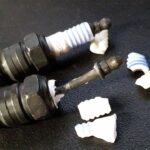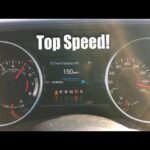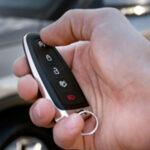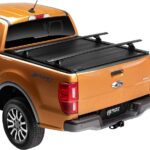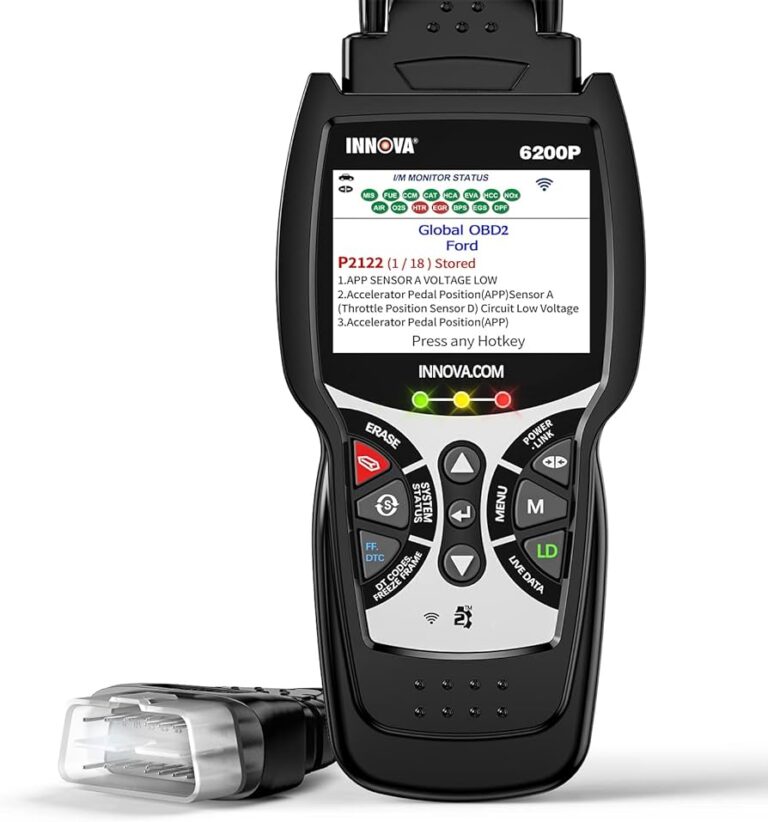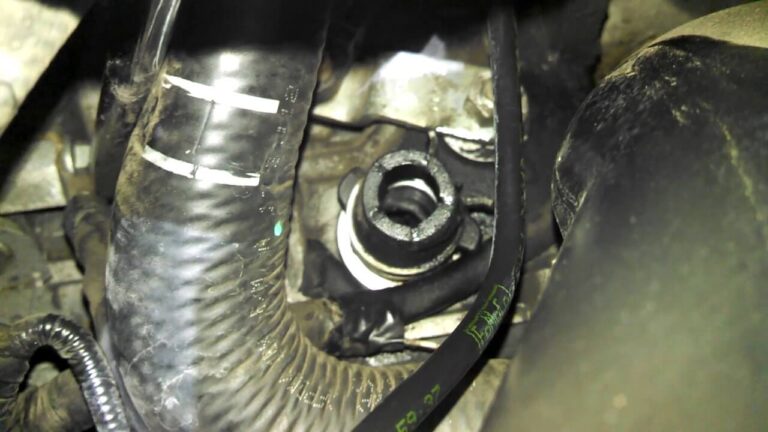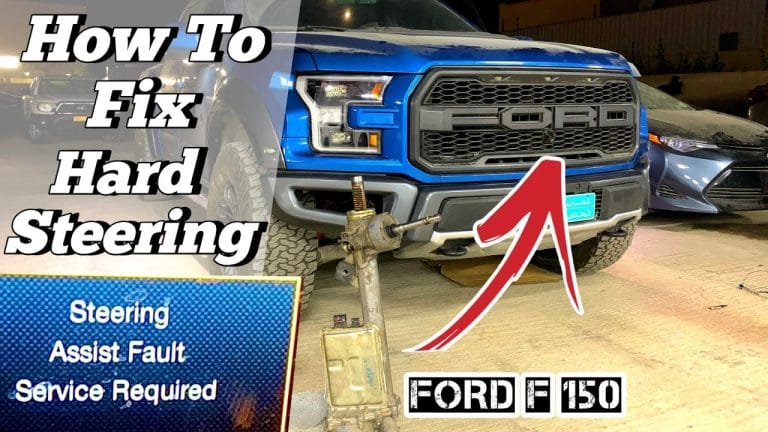Why Does My F150 Jerk When I Accelerate? Quick Fixes & Solutions
Your F150 may jerk when you accelerate due to a faulty slip yoke or dirty fuel injectors, causing engine misfires and power loss. Replacing the slip yoke or cleaning the fuel injectors can help resolve the jerking issue.

Credit: reliable-auto.com
Common Causes Of Jerking During Acceleration
If your F150 jerks when you accelerate, it could be due to dirty fuel injectors or a faulty engine temperature sensor. Other possible causes include worn-out spark plugs, a damaged fuel pump, or a blocked catalytic converter.
Dirty Or Worn-out Parts
One common cause of jerking during acceleration in an F150 is dirty or worn-out parts. This can include spark plugs, oxygen sensors, mass airflow sensors, or throttle position sensors. When these parts are dirty or worn, they can affect the engine’s performance and cause the truck to jerk during acceleration.
Fuel System Issues
Another common cause of jerking during acceleration is fuel system issues. This can include problems with the fuel filters, fuel pump, or fuel injectors. When these components are not functioning properly, they can disrupt the fuel flow to the engine, leading to a jerking sensation when you accelerate.
Engine Misfire
Engine misfire is another possible culprit behind the jerking sensation during acceleration. This occurs when the engine combustion process is not happening correctly, leading to uneven power delivery to the wheels. Common causes of engine misfire include faulty spark plugs, ignition coil issues, or a malfunctioning engine temperature sensor.
Dirty Fuel Injectors
Dirty fuel injectors can also be a primary cause of jerking during acceleration. Over time, fuel injectors can become clogged with dirt and debris, leading to an insufficient fuel supply to the engine. This can result in a loss of power during acceleration and cause the truck to jerk.
Acceleration Cable Damage
Damage to the acceleration cable can also lead to jerking during acceleration. The acceleration cable is responsible for transmitting the signal from the throttle pedal to the engine. If the cable is damaged or worn, it can cause irregular throttle response and result in a jerking motion when you try to accelerate.
Overall, if you are experiencing jerking during acceleration in your F150, it is essential to address these common causes. By replacing dirty or worn-out parts, resolving fuel system issues, fixing engine misfires, cleaning dirty fuel injectors, or repairing acceleration cable damage, you can improve your truck’s performance and enjoy a smoother driving experience.
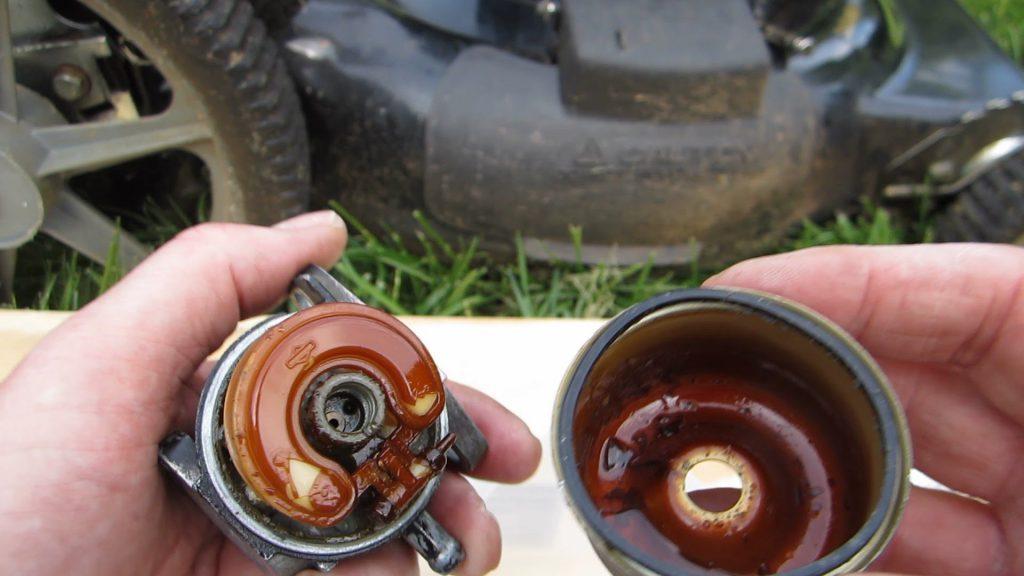
Credit: carfromjapan.com
Quick Fixes And Solutions
If you are experiencing jerking when accelerating your F150, there are several quick fixes and solutions that you can try. Identifying and addressing the root cause of the problem can help you get back to a smooth and enjoyable driving experience. Here are some common issues and their corresponding solutions:
Replacing Dirty Or Worn-out Parts
One possible reason for the jerking sensation could be dirty or worn-out parts. Spark plugs, oxygen sensors, mass airflow sensors, or throttle position sensors can become dirty or deteriorated over time, affecting the engine’s performance. Regularly replacing these parts can help maintain smooth acceleration. Make sure to consult your owner’s manual or a professional mechanic for the correct parts suitable for your F150.
Addressing Fuel System Issues
The fuel system plays a crucial role in delivering the right amount of fuel to the engine. Problems with the fuel system, such as a clogged fuel filter, a faulty fuel pump, or dirty fuel injectors, can cause jerking when accelerating. Regularly cleaning or replacing the fuel filter and addressing any fuel pump issues can help ensure a steady fuel supply to the engine. Additionally, cleaning the fuel injectors can improve fuel atomization and prevent misfires, reducing jerking sensations.
Fixing Engine Misfire
An engine misfire occurs when there is a disruption in the combustion process. This can lead to jerking or stumbling during acceleration. Check for faulty spark plugs or ignition coils as they are common culprits for engine misfires. Replacing these components, if necessary, can help restore smooth acceleration and overall engine performance.
Cleaning Dirty Fuel Injectors
Dirty fuel injectors can hinder the proper flow of fuel into the engine, resulting in poor acceleration and a jerking sensation. Luckily, this issue can be resolved by cleaning the fuel injectors. Using a fuel injector cleaner additive or opting for a professional fuel injection cleaning service can effectively remove any deposits or contaminants and improve fuel spray patterns, ensuring smoother acceleration and optimal engine performance.
Repairing Or Replacing Acceleration Cable
The acceleration cable connects the accelerator pedal to the throttle body, controlling the opening and closing of the throttle. If the cable is frayed, worn-out, or incorrectly adjusted, it can cause jerking during acceleration. Inspect the acceleration cable for any signs of damage or wear and make necessary repairs or replacements. It’s important to ensure the cable is properly adjusted for smooth and responsive acceleration.
Keep in mind that these quick fixes and solutions can resolve common causes of jerking when accelerating your F150. However, if the issue persists or if you are unsure about performing any repairs, it’s always best to consult a qualified mechanic to diagnose and address the problem accurately. Regular maintenance and addressing issues promptly can help keep your F150 running smoothly and comfortably.
Additional Factors To Consider
When your F150 jerks while accelerating, it can be caused by various factors. In addition to the common issues like dirty fuel injectors or worn-out spark plugs, there are other potential reasons that might contribute to this problem. This section will explore some additional factors to consider when trying to diagnose the jerking issue in your F150.
Cold Weather Impact
In colder weather conditions, your F150’s engine performance can be affected, which may lead to jerkiness during acceleration. The engine’s fuel and ignition system might struggle to function optimally, resulting in a noticeable jerk. It is important to keep in mind that extreme cold temperatures can impact the overall performance of your vehicle.
Gear Issues
If your F150 experiences jerking specifically when shifting gears, it could be a sign of gear problems. Issues with the transmission, such as worn-out clutches or a malfunctioning torque converter, can cause abrupt gear changes, resulting in jerky acceleration. It is crucial to have your transmission inspected by a professional in such cases to identify and resolve any gear-related issues.
Faulty Spark Plugs
Worn-out or faulty spark plugs can also contribute to jerking during acceleration. Spark plugs are responsible for igniting the air-fuel mixture in the engine cylinders. If they are not functioning properly, the combustion process can be disrupted, leading to a loss of power and jerky acceleration. Regularly inspecting and replacing spark plugs can help prevent this issue.
Damaged Acceleration Cable
An overlooked factor that can cause jerking while accelerating is a damaged or frayed acceleration cable. This cable is responsible for transmitting the driver’s input to the throttle mechanism. If it becomes worn or damaged, it can lead to erratic throttle responses and jerky acceleration. Inspecting and replacing the acceleration cable, if necessary, will help restore smooth acceleration.
Weather Conditions
Lastly, weather conditions can also play a role in causing your F150 to jerk during acceleration. Rain, snow, or other adverse weather conditions can affect tire traction, resulting in wheelspin or loss of traction. This can lead to a jerky acceleration experience. It is important to adjust your driving style accordingly and ensure your tires are in good condition for optimal traction in different weather conditions.
Remember, identifying the underlying cause of the jerking issue in your F150 is crucial for efficient troubleshooting and resolving the problem. Consulting with a professional mechanic will provide a thorough diagnosis and appropriate solutions to ensure your F150 performs smoothly during acceleration.

Credit: www.cars.com
How To Diagnose The Problem
If your F150 jerks when you accelerate, it can be frustrating and concerning. However, diagnosing the problem can help you identify the underlying issue and find a solution. In this section, we will discuss the steps you can take to diagnose the problem and get your truck running smoothly again.
Performing A Vehicle Inspection
One of the first steps in diagnosing the jerking issue is to perform a thorough inspection of your vehicle. Check for any visible damage or loose components that could be causing the problem. This includes inspecting the engine bay, suspension, and drivetrain. Look out for any worn-out or broken parts that may need to be replaced.
Checking Fuel System Components
The fuel system plays a crucial role in the proper functioning of your vehicle. Start by inspecting the fuel filters for any signs of clogging or contamination. Replace them if necessary. Next, check the fuel pump for proper operation and ensure that it is delivering the correct fuel pressure. Dirty or faulty fuel injectors can also cause jerking during acceleration, so consider cleaning or replacing them if needed.
Testing Ignition System
The ignition system is responsible for generating the spark that ignites the fuel-air mixture in the combustion chamber. Any issues with this system can result in jerking or hesitation. Begin by checking the condition of the spark plugs. Replace them if they are worn out or covered in deposits. Additionally, test the ignition coils to ensure they are functioning correctly. Faulty ignition coils can cause misfires and jerking.
Examining Acceleration Cable
The acceleration cable, also known as the throttle cable, controls the opening and closing of the throttle body. Over time, this cable can become stretched or worn out, leading to poor acceleration and jerking. Inspect the cable for signs of damage or slack. If necessary, adjust or replace the cable to restore smooth acceleration.
Diagnostic Tools
While a visual inspection can uncover some issues, utilizing diagnostic tools can provide more accurate and detailed information about your truck’s performance. Consider using an OBD-II scanner to retrieve any stored trouble codes from your vehicle’s computer system. These codes can give you valuable insights into the specific problem areas that need attention.
Additionally, a fuel pressure gauge can help you measure the fuel pressure accurately, ensuring that it falls within the manufacturer’s recommended range.
By following these diagnostic steps and using the appropriate tools, you can pinpoint the cause of the jerking issue in your F150 and take the necessary steps to resolve it. Remember, if you are unsure about any aspect of the diagnosis or repair, it is always best to consult a professional mechanic.
Preventing Jerking During Acceleration
If your F150 jerks when you accelerate, it could be due to dirty fuel injectors or worn-out parts like spark plugs or oxygen sensors. Diagnosing and fixing the issue may require replacing these components.
Experiencing jerking when accelerating in your Ford F150 can be frustrating and potentially dangerous. Fortunately, there are several preventive measures you can take to ensure a smooth driving experience. By following these tips, you can avoid unnecessary jerking and enjoy a more comfortable ride.
Regular Maintenance And Tune-ups
Regular maintenance and tune-ups play a crucial role in preventing jerking during acceleration. By keeping your vehicle in top condition, you can minimize the risk of issues that may cause jerking. Here are a few maintenance tasks to prioritize:
- Regularly changing the engine oil and filter can help maintain proper lubrication and prevent engine misfires.
- Inspecting and replacing worn-out spark plugs can improve combustion efficiency and reduce engine hesitation.
- Checking and cleaning the air filter can ensure optimal airflow and prevent fuel mixture issues.
- Examining the ignition system, including the ignition coils and wires, can prevent misfires and improve overall engine performance.
Using High-quality Fuel
The fuel you use can have a significant impact on the smoothness of your acceleration. Using high-quality fuel can help keep your engine running efficiently, reducing the likelihood of jerking. Here are a few tips for choosing the right fuel:
- Opt for a higher octane rating fuel recommended by your vehicle manufacturer.
- Look for gasoline that doesn’t contain ethanol, as it can lead to fuel system issues.
- Consider using fuel additives that clean and protect the fuel system.
Avoiding Sudden Accelerations
Sudden and aggressive accelerations can put unnecessary strain on your vehicle, potentially causing jerking. By practicing smooth and gradual acceleration, you can minimize these issues. Here are a few techniques to keep in mind:
- Apply gradual pressure to the accelerator pedal, allowing the engine to respond smoothly.
- Give yourself enough space on the road to accelerate gently without the need for sudden bursts of speed.
- Avoid “flooring” the accelerator pedal, especially when starting from a stop.
Proper Driving Techniques
Adopting proper driving techniques can also help prevent jerking during acceleration. Here are a few tips to keep in mind:
- Keep your foot steady on the accelerator pedal, avoiding unnecessary fluctuations in pressure.
- Anticipate traffic conditions and adjust your speed accordingly to avoid sudden stops and starts.
- Shift gears smoothly and at appropriate RPMs when driving a manual transmission vehicle.
Replacing Parts In A Timely Manner
Over time, certain components of your vehicle may wear out or become faulty, leading to jerking during acceleration. It’s important to replace these parts promptly to maintain smooth performance. Here are a few components to monitor:
| Component | When to Replace |
|---|---|
| Mass airflow sensor | When it starts malfunctioning or becomes dirty |
| Fuel injectors | If they become clogged or fail |
| Spark plugs | As per your vehicle manufacturer’s recommended schedule |
| Throttle position sensor | If it starts generating incorrect signals |
By following these preventive measures, you can mitigate the risk of jerking during acceleration in your F150. Remember to keep up with regular maintenance, use high-quality fuel, avoid sudden accelerations, practice proper driving techniques, and replace worn-out parts in a timely manner. Taking these steps will not only improve your driving experience but also contribute to the longevity of your vehicle.
Frequently Asked Questions On Why Does My F150 Jerk When I Accelerate
How Do You Fix A Car Jerking When Accelerating?
To fix a car jerking when accelerating, replace dirty or worn-out parts like spark plugs, oxygen sensors, mass airflow sensors, or throttle position sensors. Other possible causes include dirty fuel injectors, a damaged fuel pump, a blocked catalytic converter, or moisture buildup.
Why Does My Truck Lunge When I Accelerate?
A truck can lunge when accelerating due to various reasons like dirty fuel injectors, damaged fuel pump, blocked catalytic converter, faulty mass airflow sensor, or broken spark plugs. It is recommended to diagnose and fix the problem by replacing worn-out parts or addressing fuel system issues.
Why Does My Ford F150 Jump When Accelerating?
The Ford F150 may jump when accelerating due to dirty or worn-out parts like spark plugs, oxygen sensors, mass airflow sensors, or throttle position sensors. It could also be caused by dirty fuel injectors, a damaged fuel pump, a blocked catalytic converter, or broken spark plugs.
Why Does My F150 Idle Fine But Sputters When Accelerating?
The most common cause of an F150 idling fine but sputtering when accelerating is issues with the fuel system. This could be due to dirty fuel filters, fuel pump problems, or fuel injector issues. Another possibility is poor ignition, such as spark plug or ignition coil problems.
Consider checking these components for any potential issues.
Conclusion
If your F150 jerks when you accelerate, it could be due to a variety of reasons. Dirty or worn-out parts such as spark plugs, oxygen sensors, mass airflow sensors, or throttle position sensors may need to be replaced. Additionally, issues with the fuel system, such as bad fuel filters or fuel injector problems, can also cause jerking.
It’s crucial to diagnose and fix these issues promptly to ensure smooth acceleration and optimal performance of your vehicle.
